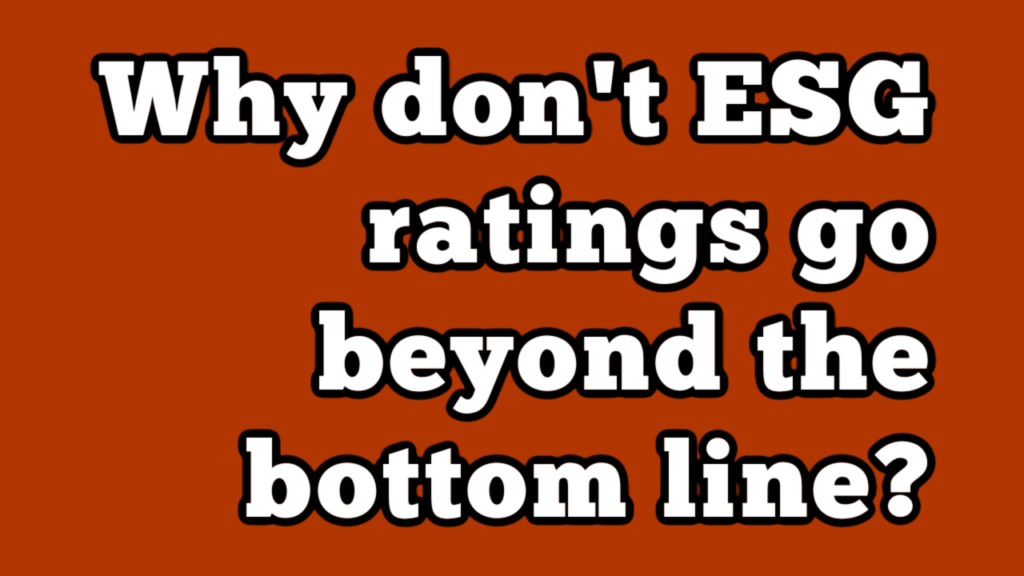Why don’t ESG ratings go beyond the bottom line?

This Bloomberg article discusses the debate whether ESG rating services should assess companies beyond single materiality – beyond integrating environmental risks into financial performance. Here’s an excerpt from the article:
Yet there’s virtually no connection between MSCI’s “better world” marketing and its methodology. That’s because the ratings don’t measure a company’s impact on the Earth and society. In fact, they gauge the opposite: the potential impact of the world on the company and its shareholders. MSCI doesn’t dispute this characterization. It defends its methodology as the most financially relevant for the companies it rates.
This critical feature of the ESG system, which flips the very notion of sustainable investing on its head for many investors, can be seen repeatedly in thousands of pages of MSCI’s rating reports. Bloomberg Businessweek analyzed every ESG rating upgrade that MSCI awarded to companies in the S&P 500 from January 2020 through June of this year, as a record amount of cash flowed into ESG funds. In all, the review included 155 S&P 500 companies and their upgrades.
Also see this note from Bob Pojasek – and the comments beneath it – to better understand the arguments. And here’s an excerpt from this note by Duncan Austin:
Some quotes from Fernandez crystallize the real and unhelpful conflation in the Western, particularly the American, business mind of ‘government intervention’ and the spectre of ‘socialism’. This denies the other possibility that markets are beneficial, but that in recently identifying massive externalities of climate etc, we have discovered that today’s markets are founded on unsustainable property rights that now need one-off correction.
Effectively, we have a system of ‘externality-denying capitalism’ for which the remedy is not ‘externality-denying socialism’, but rather acceptance and internalization of externalities. That’s not taking markets away, so much as directing markets to where they need to go. Yes, that will be costly and disruptive, but the pay-off is a sustainable human culture.
